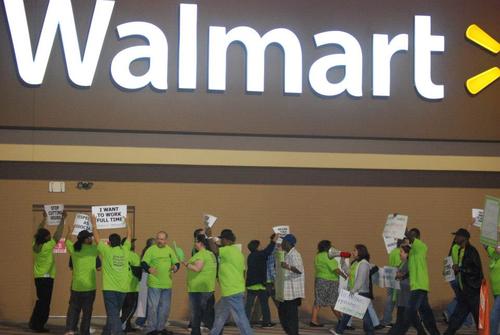
It is a good polemical argument, but not exactly fair. ATF claims there are three major tax subsidies given to Walmart and the Walton family. First, $6.2 billion in subsidies that ATF calculates on the basis of low pay to employees that forces them to rely on federally funded programs like food stamps, health care and others. Second, a $1 billion subsidy for taking advantage of accelerated depreciation write-offs. Third, a $600 million subsidy directly to the Walton family, whose stake in the company is taxed at the lower capital gains rate rather than the tax rate paid on wages and salaries.
The problems here are obvious. The second and third “subsidies” are enshrined in tax law. They may unequally benefit some groups (the rich and corporations) at the expense of others (the poor and the middle class), but that is a political and ethical issue that needs to be addressed by Congress. ATF might say, “Good luck with that; we’ve got the best Congress money can buy,” but there’s no getting around it. The law may be unfair, but it is still the law until it is changed.
ALSO READ: Nine CEOs with the Worst Reputations
As to the first ATF subsidy, the reasoning is that because of the social safety net (thin as it is) that the U.S. government provides, Walmart can pay low wages and the incomes of those low-paid workers will be topped up with federal payment programs. The ATF concludes that if Walmart paid a living wage then taxpayers would not be saddled with these expensive social welfare programs.
An article at Forbes disassembles this argument by asking what the government would be paying in welfare costs if Walmart did not exist. The argument is that the demand for federal payments would be greater because some (presumably large) portion of the current 1.4 million Walmart employees would be unemployed. The reservation wage (the lowest amount someone will take to do a job) also rises as a result of federal payments, meaning that Walmart presumably pays more than it might otherwise have to get employees to work rather than stay home and munch bonbons at the taxpayers’ expense.
Trying to fit an ethical problem to an economic solution is always difficult, and the folks at ATF have not succeeded totally. But neither do defenders of the status quo, who almost invariably resort to fashioning a morality play — work is better than idleness, no matter how little one is paid — instead of admitting that there might be a more equitable solution.
ALSO READ: Ten Companies Paying Americans the Least
“The Next NVIDIA” Could Change Your Life
If you missed out on NVIDIA’s historic run, your chance to see life-changing profits from AI isn’t over.
The 24/7 Wall Street Analyst who first called NVIDIA’s AI-fueled rise in 2009 just published a brand-new research report named “The Next NVIDIA.”
Click here to download your FREE copy.
Thank you for reading! Have some feedback for us?
Contact the 24/7 Wall St. editorial team.


